Aselle Kurmanova joined Cozen O’Connor in 2021 and currently serves as a member of their Health Care Practice Group. Ms. Kurmanova received her J.D. from Georgetown University Law Center and is experienced in the areas of corporate mergers and acquisitions, tax law, divestitures, and joint venture arrangements. She has focused her efforts on the pandemic’s effect on corporate transactions and recently wrote a commentary on fraud in the digital health industry.
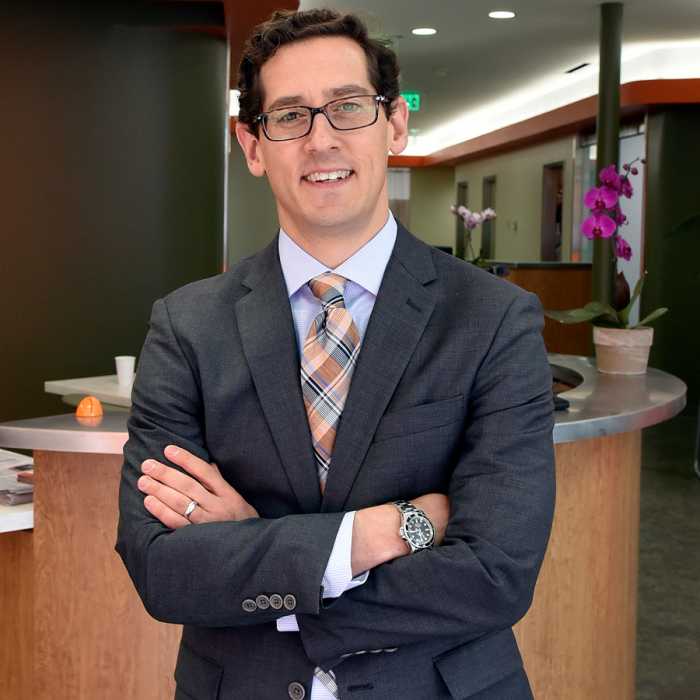
Todd Latz
CEO, GoHealth Urgent Care

Todd Latz has been the CEO of GoHealth since 2015. Today, it has grown from seven to approximately 200 on-demand care centers across 13 states through a unique, partnership-oriented model. GoHealth offers a true omnichannel experience utilizing its award-winning, efficient, and highly accessible centers alongside its fully integrated virtual care platform to both consumers and a fast-growing number of employers. GoHealth centers deliver unparalleled experiences through an innovative and effortless customer journey that is seamlessly integrated into the broader continuum of care through its partnerships with leading health systems.
Why did you decide to pursue a career in health care?
I love the complexity of our health care system, the challenges of tackling a seemingly endless number of problems, and the massive opportunities and significant value that can be achieved by disrupting the industry from within. When I began my career as a transactional attorney, I was industry segment agnostic. Once I got my first taste of health care, I was hooked. I came to health care through the “side door,” but I don’t intend to ever leave.
What is the biggest challenge currently facing New York’s health care system?
The most significant challenges to New York’s health system are access and health equity, along with maintaining the appropriate level of infrastructure to meet the ever-evolving demands placed on the system by what used to be once-in-multiple-generations events like the Covid-19 pandemic, which I suspect we will be facing with much greater frequency moving forward.
How can New York State ensure access to affordable health care?
The State must focus on investment in, and support of, innovative and more nimble providers and organizations on the forefront of care. While New York State’s response to the pandemic was impressive in many respects, we still faced unnecessary hurdles, challenges and bureaucracy that limited expedient access to care.
What does the future of health care look like?
The future of health care should be much more collaborative and integrated, using data and experience to achieve these goals:
- Patients, providers and payors working together with more aligned objectives around proactive care — a focus on health vs. illness
- Increased access at lower costs
- Removing friction and excesses such as duplicative tests and visits, and patient anxiety

Eric Linzer
President and CEO, New York Health Plan Association

Eric Linzer is the president and CEO of the New York Health Plan Association, which represents 29 health plans that provide comprehensive health care coverage to more than eight million New Yorkers. He is responsible for development of policy positions for the organization, advocacy with the executive and legislative branches of government, and serves as lead spokesperson to the media and the public on issues relating to the managed care industry.
What is the biggest challenge currently facing New York’s health care system?
Making health care more affordable for employers and consumers and tackling the underlying social, economic, and environmental factors that affect health outcomes to ensure an equitable system for all New Yorkers.
How can New York State ensure access to affordable health care?
Health care premiums and health care costs are inextricably linked. Making health care more affordable requires tackling the factors driving those costs, specifically the rising prices charged for medical care and prescription drugs, to provide relief to consumers and employers.
What does the future of health care look like?
Ensuring every New Yorker has access to high-quality health care that is equitable and affordable and making the essential investments to address the nonmedical factors that contribute to poor health and disparities in treatment.
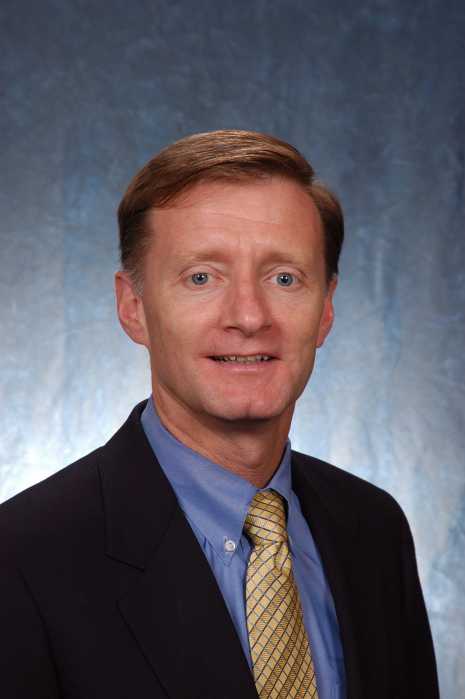
Michael McGuire
CEO, UnitedHealthcare of New York

Michael McGuire is the chief executive officer of UnitedHealthcare of New York, where he is responsible for sales, account management, regulatory compliance, and network development for UnitedHealthcare’s commercial operations throughout the state. Michael and his team coordinate access to a wide array of consumer-oriented, personalized health benefit plans and services for nearly three million people who purchase their health insurance individually or through small, large, and public sector employers.
Why did you decide to pursue a career in health care?
I got here in a roundabout way. I have a BS in Biology and started my career at MetLife in a Sales Training program. I have always been interested in health and wellness and am passionate about helping people navigate the health care system. So, when you put those interests, passions, and work experience together, working for UnitedHealthcare and leading the New York Health Plan has been a rewarding journey for me.
What is the biggest challenge currently facing New York’s health care system?
Our health care system is complex, costly, and confusing. This is why it’s important for my team to continue helping patients navigate the health care delivery system, lower Rx costs, and reduce the burdens associated with finding accessible care.
How can New York State ensure access to affordable health care?
Accessibility and affordability go hand in hand. By continuing to expand access to care and focusing on integrated care models with virtual and home-based capabilities, we can better assist New Yorkers in the prevention and management of costly chronic diseases — like diabetes, asthma, and behavioral health.
What does the future of health care look like?
Although it’s hard to predict the future, our focus at UnitedHealthcare will continue to address social determinants of health. Factors such as housing, transportation, access to food, and quality health care can determine as much as 80% of a person’s health. By focusing on data, organizational strategy, and community partnerships, we can take a holistic approach to care delivery and ultimately lead to better health outcomes across the state.
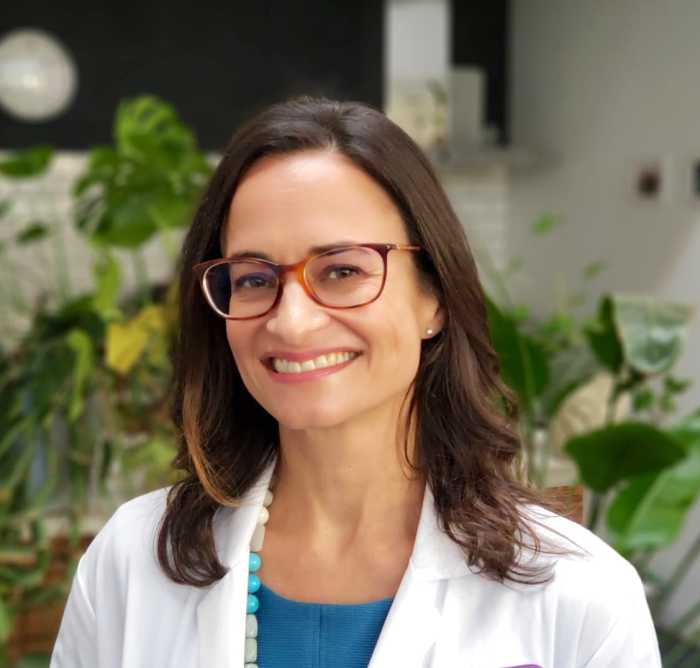
Michelle McMacken
Executive Director of Nutrition and Lifestyle Medicine, NYC Health + Hospitals

Michelle McMacken, MD, FACP, DipABLM is executive director of nutrition and lifestyle medicine at NYC Health + Hospitals, the largest public health care system in the U.S. She founded the innovative Bellevue Plant-Based Lifestyle Medicine Program in 2019 to improve cardiometabolic health among high-risk patients, and she is now leading the expansion of this program to six new H+H sites throughout New York City. An associate professor of medicine at NYU Grossman School of Medicine, Dr. McMacken is board certified in both internal medicine and lifestyle medicine.
Why did you decide to pursue a career in health care?
I majored in English and never thought I’d end up in health care. After landing a job at the CDC, I was intrigued by my colleagues’ work. Once I got to medical school, I realized that I relished one-on-one connections with patients. I pursued a career in primary care internal medicine because I loved having years-long relationships with patients and helping them navigate health decisions within the complexities of their lives.
What is the biggest challenge currently facing New York’s health care system?
The health care system isn’t set up to prevent common chronic diseases or to address their root causes. Suboptimal diets are the leading risk factor for dying of a chronic disease in the U.S. Yet we don’t have support systems to help patients make lifestyle changes. We need to start leveraging our most powerful tools — nutrition and lifestyle — while also helping address the barriers that many communities face.
How can New York State ensure access to affordable health care?
Everyone deserves access to high-quality, comprehensive health care. This is how you reduce health disparities and improve the lives of New Yorkers. We need to expand the number of people who are eligible for, and enroll in, health insurance. We need to remove barriers to care and approach care with equity, respect, and compassion.
What does the future of health care look like?
The future of health care is a system in which everyone has access to care that addresses the root cause of common conditions like heart disease and diabetes. This means integrating services to support patients in adapting a healthy lifestyle. It also means working across sectors to ensure availability of nutritious foods, safe places to exercise, and mental health services. We also need to address inequities in education, housing, and employment.
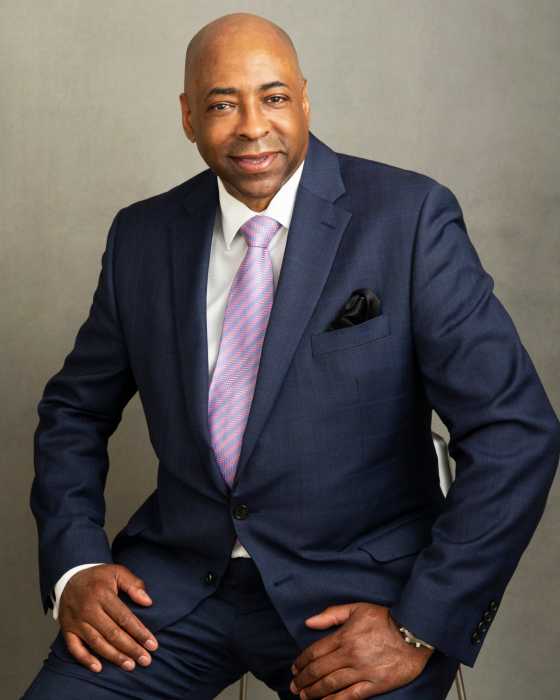
Roger Milliner
Chief Growth Officer, MetroPlusHealth

Roger Milliner is chief growth officer for MetroPlusHealth. Mr. Milliner, a native of Brooklyn, New York, began his career at MetroPlusHealth in February 1990. After spending 10 years at two health maintenance organizations, he rejoined MetroPlusHealth in August 2000. In his current role, Mr. Milliner oversees three departments and manages a staff of over 350 employees. Under his leadership in the Growth Division, MetroPlusHealth has increased membership by over 725% to its current membership of 700,000 members.
Why did you decide to pursue a career in health care?
My father was in the military, and my mother was an educator, so expectations were high. Growing up, I enjoyed helping people and originally aspired to be a criminal defense lawyer. Helping people now means ensuring that all New Yorkers have access to health care and other essential services. I am committed to a career centered on service to others! I want to be an inspiration to others who do not see themselves in leadership roles.
What is the biggest challenge currently facing New York’s health care system?
Over the past months, thousands of asylum seekers have come to New York City. It became a priority for MetroPlusHealth to ensure they have access to health care and other essential services needed to live and thrive in this city. In addition, rising health care costs continue to prevent consumers from getting the care they need. Making the eligibility and recertification requirements easier will ensure more New Yorkers are covered.
How can New York State ensure access to affordable health care?
New York State already provides affordable health care to New Yorkers. Additional subsidies increased primary care access, and emphasis on prevention is key to a healthy City. Substance abuse and mental health challenges must be addressed to minimize contributing factors leading to hospitalization. New York State must reduce the bureaucracy that burdens health care providers and payors so we can focus on patients and members. Operational efficiencies must be implemented to make enrollment, recertification, and eligibility requirements seamless.
What does the future of health care look like?
We need an agile and flexible health system. We must adopt modern preventive measures to prevent illness rather than treating it once it is already out of control. Health education, harm and risk reduction are important for improving health outcomes. Many individuals and families struggle through rough challenges to make their way to our communities. Affordable health care should not impede integration into our society.
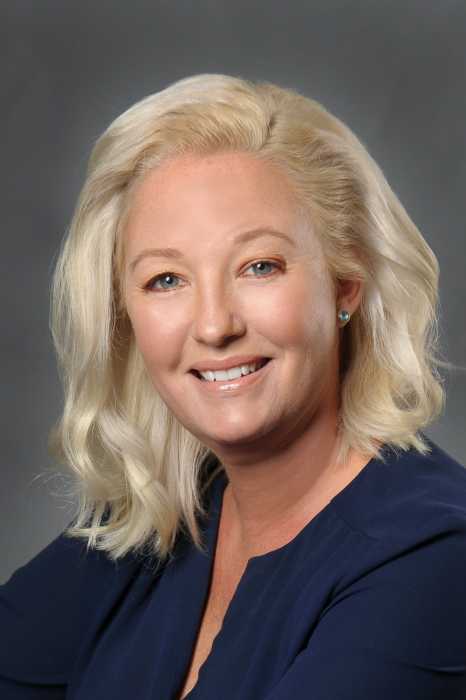
Liz Misa
Senior Vice President, Ostroff Associates

Liz Misa has been working in government for over 20 years and possesses extensive experience in the areas of health care policy, lobbying, budget development and strategic planning. Prior to joining Ostroff Associates, Liz served as the deputy medicaid director at the New York State Department of Health for over seven years and assisted in the day-to-day operations in the Office of Health Insurance Programs, which operates a $60+ billion Medicaid program and oversees a staff of over 1,000 employees.
What is the biggest challenge currently facing New York’s health care system?
More than two years into the COVID-19 pandemic, health care institutions continue to face multiple challenges. These include personnel shortages and burnout, disparities in health equity, trouble keeping pace with medical advances (e.g. gene therapy, nanomedicine), and interoperability capabilities. To help address some of these challenges, DOH recently submitted a federal 1115 waiver seeking approval of $13.5 billion to help address health equity, digital health, workforce, housing and improved SDOH connectivity to the health care system.
How can New York State ensure access to affordable health care?
There are multiple strategies that can be explored and/or implemented to ensure access to affordable health care and reduce the uninsured rate of New Yorkers. Some options include creating a state-program for low-income immigrants, expanding value-based payment opportunities to drive value over profits, and increasing the use of telehealth.
As the state budget approaches this year, there are multiple opportunities to enhance access to affordable health care.
What does the future of health care look like?
The future of health care will include shifts in sites of care, improved integration between community-based organizations and health care systems, and increased investments from private equity and venture capitalists.
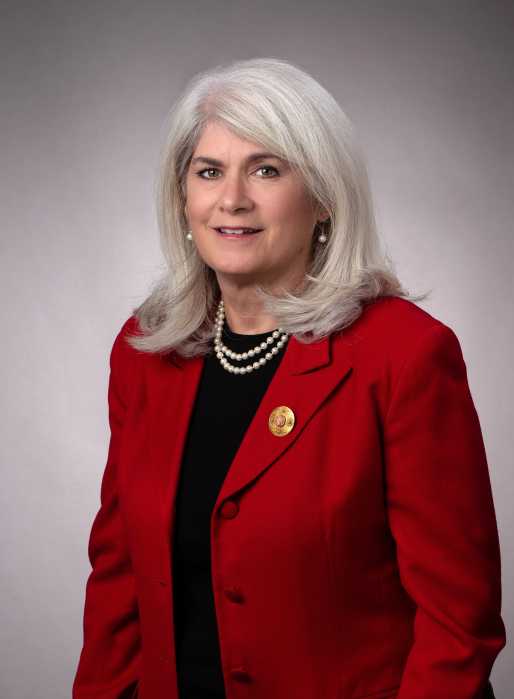
Leslie Moran
Senior Vice President, New York Health Plan Association

In her role with the New York Health Plan Association, which represents 29 health plans across the state that provide comprehensive health care coverage to more than eight million New Yorkers, Leslie advocates on behalf of HPA’s member health plans before the legislature, regulatory agencies, and a wide range of groups seeking information on managed care. She also works closely with the media to help inform reporters and editors about managed care and the role of health plans in New York’s health care system.
Why did you decide to pursue a career in health care?
When I started — during the first health care reform discussions — managed care was seen as a way to provide quality, affordable care to more people. I still firmly believe managed care is the best model to achieve these goals. New York has reached near universal coverage, largely through the efforts of our plans, which are committed to this objective. Working with policymakers to ensure plans can continue these efforts is important to me.
What is the biggest challenge currently facing New York’s health care system?
There are several — affordability, transparency and accountability are the biggest. Health coverage is not accessible if it is not affordable. To improve affordability, we need great transparency about what health care actually costs and more accountability for those costs. This information is vital so consumers better understand why health insurance premiums are what they are.
How can New York State ensure access to affordable health care?
Health plan rates, which are regulated by the state, directly reflect the factors driving higher health care costs: rising prices for medical services and prescription drugs; greater utilization. We need to do more to bring down those underlying costs. Provider consolidation and numerous mandated benefits also contribute to affordability. Enhancing oversight of provider mergers, acquisitions and affiliations, and scrutinizing benefit proposals and removing outdated coverage requirements would help relieve the pressure on premiums.
What does the future of health care look like?
Health equity — ensuring and improving it — is a big factor in the future of our health care system. Addressing equity and social determinants of health requires multifaceted, multi-stakeholder approaches. Health plans are already forging relationships so we can remove barriers to care and tackle the underlying social, economic, and environmental factors that affect health outcomes. These coordinated efforts are crucial to fostering a health care system that can best serve those in need.

Jasmin Moshirpur
Chief Medical Officer, NYC Health + Hospitals/Elmhurst and Queens and Dean for Elmhurst and Queens Hospital Programs, Icahn School of Medicine at Mount Sinai

Dr. Jasmin Moshirpur is professor of obstetrics and gynecology and dean for Elmhurst/Queens Programs at the Icahn School of Medicine at Mount Sinai and chief medical officer for New York City Health + Hospitals/Elmhurst and Queens. As the former director of Obstetrics and Gynecology at Elmhurst, she pioneered an outstanding program for the community that rigorously emphasized preventive medicine and gynecological screenings. Dr. Jasmin Moshirpur is a true leader and the ultimate engaged citizen and physician. She also has three children and 10 grandchildren that she is very proud of.
Why did you decide to pursue a career in health care?
Medicine is a field where you can reach many people. Once I got involved in obstetrics and gynecology I knew I was making a great impact because, as a female physician, women could relate to me. When I came to work in New York’s public hospital system and at Elmhurst and Queens Hospitals, I felt very fulfilled because I was serving in a high-needs community where people really needed physicians who cared and were engaged.
What is the biggest challenge currently facing New York’s health care system?
By far, the biggest challenge we have faced as health care providers in New York has been COVID-19. In addition to the tragic loss of life we endured, the pandemic put an unprecedented strain on our resources and staffing levels. As we emerge from the pandemic, our challenges will involve continuing to recruit health care workers in high-needs areas of medicine and embracing and integrating new technology in ways that enhance and improve patient care.
How can New York State ensure access to affordable health care?
I have been pleased by efforts in our city and state to expand access to health care. For instance NYC Health + Hospitals has worked very hard to inform our patients about NYC Care, which is a health care access program that guarantees low-cost and no-cost services offered by NYC Health + Hospitals to New Yorkers who do not qualify for or cannot afford health insurance.
What does the future of health care look like?
As we emerge out of the pandemic hopefully more resources will go into preventive care and primary care. Many of the chronic diseases we treat regularly, such as high blood pressure, diabetes, and heart disease, can be caught early and managed with access to primary care. I am also looking forward to the use of improved and enhanced technology that will lead to better care and longer lives for our patients.
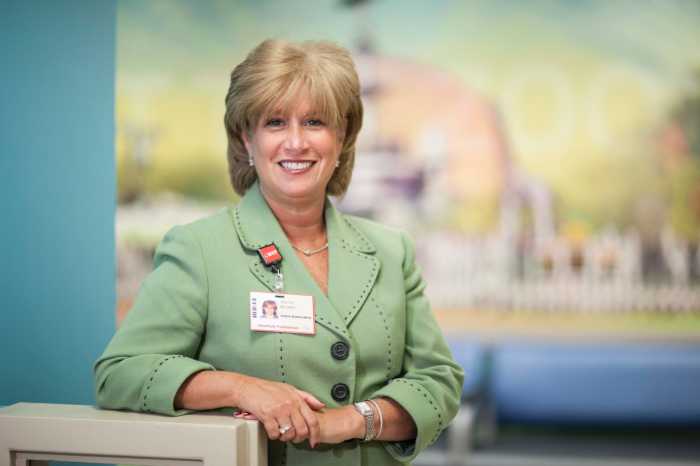
Jaclyn Mucaria
President, NewYork-Presbyterian Queens Hospital

Jaclyn A. Mucaria, MPA, is president of NewYork-Presbyterian Queens Hospital, where she provides strategic vision, leadership, management and oversight for quality and operations. With 28 years as a distinguished health care professional, she previously served as COO at NYP Queens, and as senior vice president of ambulatory care and patient centered services at NYPH. Earlier in her career, Ms. Mucaria served as associate hospital director at Mount Sinai Hospital. She holds a bachelor’s in Medical Technology from SUNY Stony Brook and a master’s in public administration from the New York University’s Wagner School.
Why did you decide to pursue a career in health care?
I was drawn to health care at a young age because I saw some serious health issues in my family growing up. My dad had triple bypass surgery at the age of 42 and later had other issues which required frequent MD visits. We were on Medicaid for a while and had issues accessing great health care, which led me to be passionate about delivering the best care to everyone regardless of insurance or means.
What is the biggest challenge currently facing New York’s health care system?
We face difficult staffing and supply chain shortages. Many staff, including nurses and physicians, were devastated by COVID, and left health care to pursue careers in other industries. Demand for professionals greatly exceeds supply. Despite market adjustments in salary, recruiting employees in many ancillary/support areas remains challenging. Competition amongst hospitals in New York is fierce, driving wages up for staff and physicians. We continue to struggle with supply and equipment shortages, which can impact operations.
How can New York State ensure access to affordable health care?
New York State can develop hospital incentives to improve access for all residents. Expand grants for navigators and other staff to increase access and 24/7 availability. Consider changes to encourage some hospitals and MDs to see patients with Medicaid. Develop solutions for patients with mental health issues, substance abuse issues, and/or homelessness, which crowd emergency rooms. Behavioral health issues are increasing with insufficient psych beds or facilities to handle this growing concern.
What does the future of health care look like?
More telehealth, home monitoring, increased use of artificial intelligence for decision making, genetic testing and other ways to predict disease. Fewer inpatient beds and more focus on ambulatory care.








